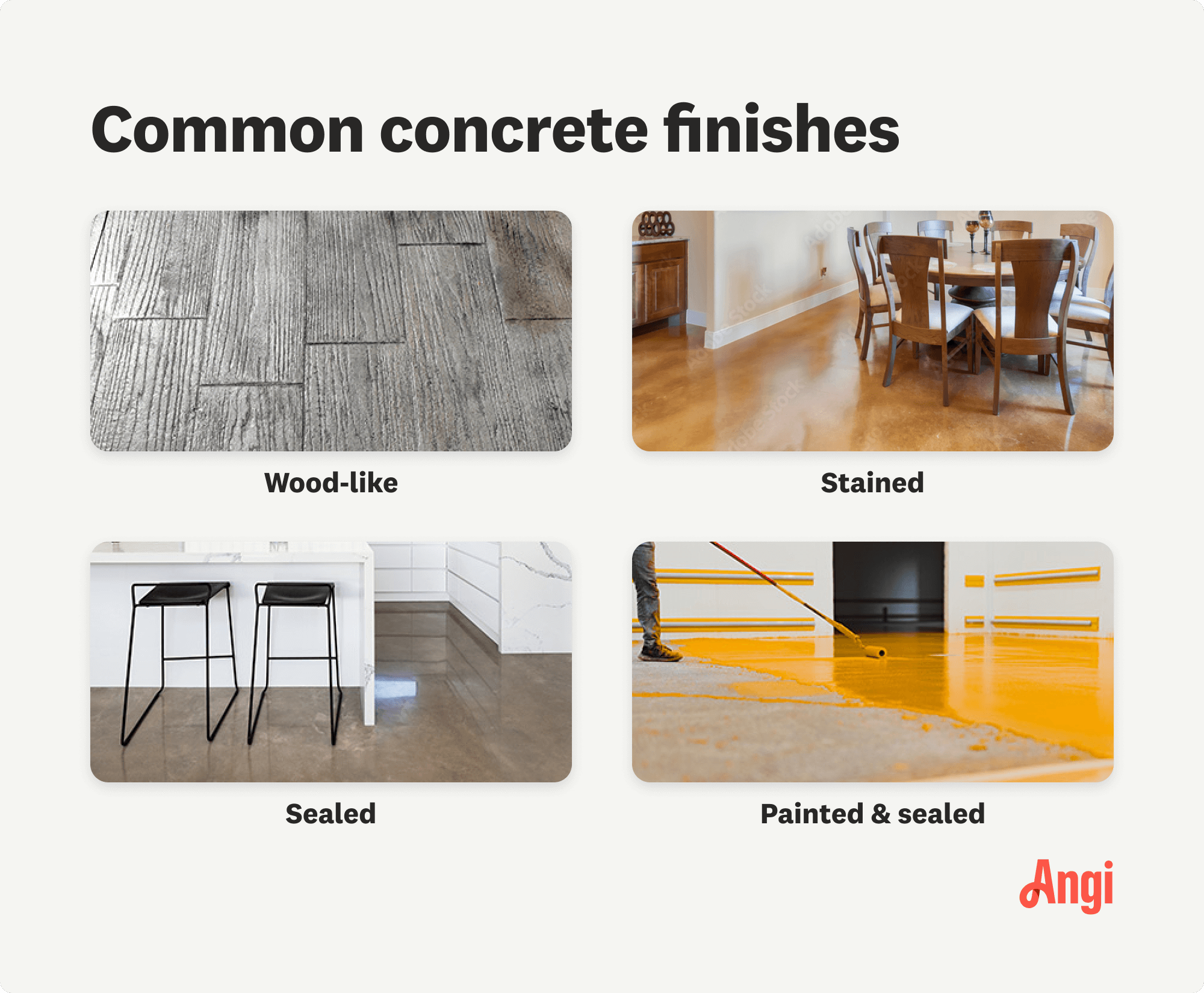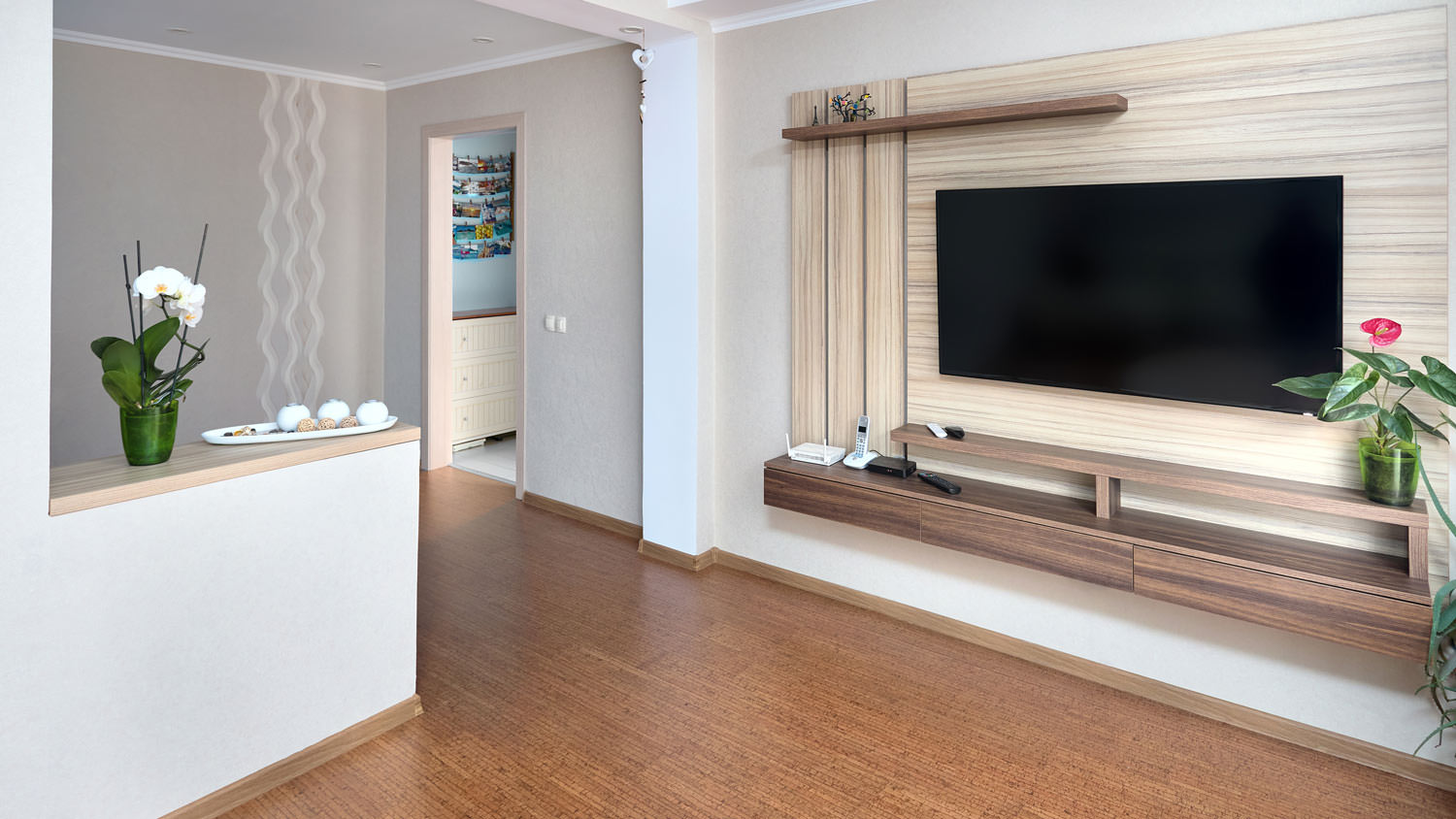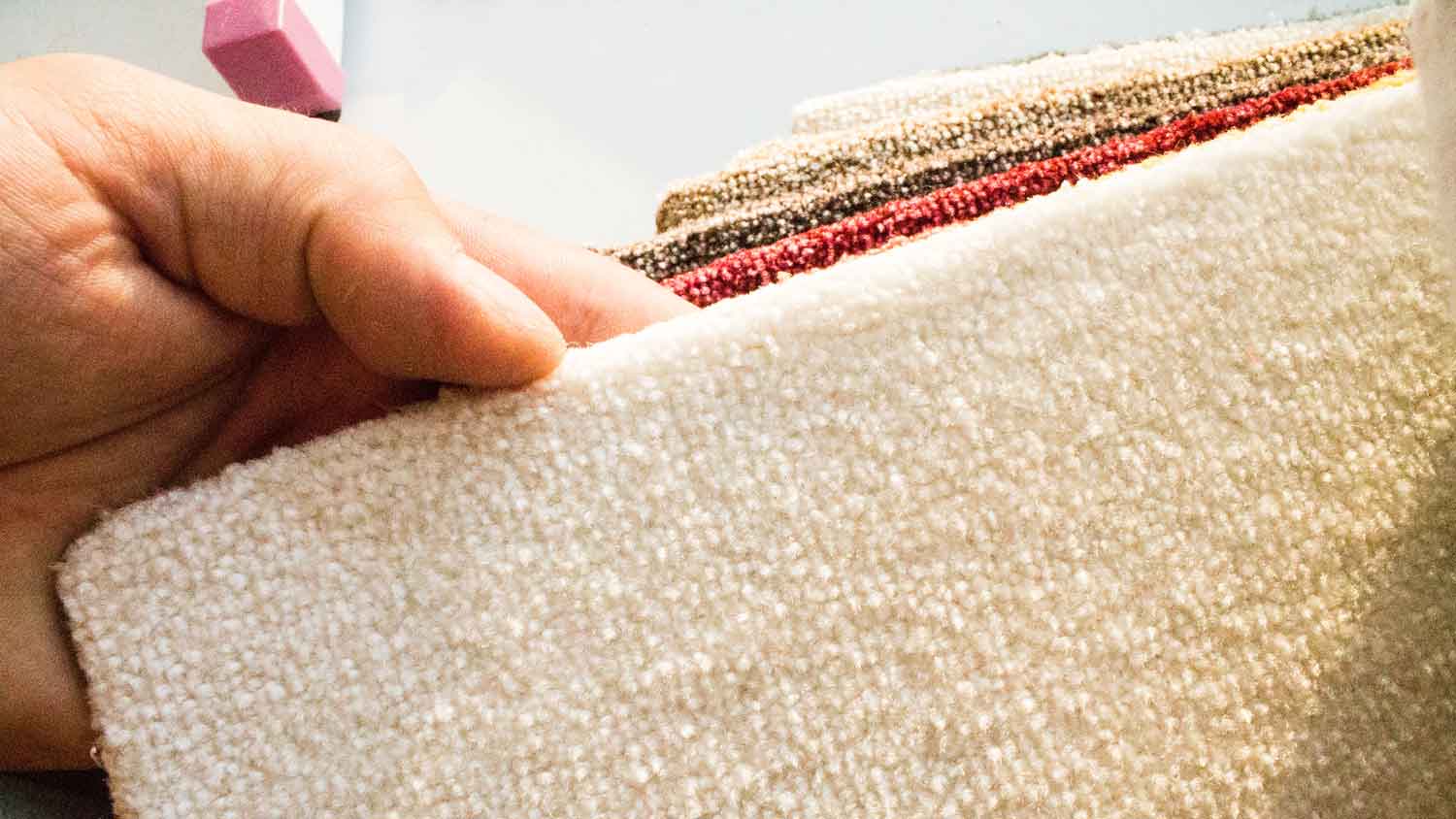
Discover vinyl flooring installation costs, including average prices, key cost factors, and tips to save on your new floors.
Polished concrete floors cost an average of $4,500, but price often ranges from $1,000 to $8,000. A pro will determine the final cost based on the square footage, type of finish, and concrete grade.


Polished concrete floors cost an average of $2 to $16 per square foot.
The cost of concrete floors is influenced by the square footage of the room, the polishing technique, the intricacy of the design, and more.
Installing a new concrete slab will add expenses—and so will resurfacing, repairing, or removing an existing concrete floor.
Polishing or finishing a concrete floor isn’t a DIY-friendly job, and it’s best to hire a concrete flooring professional.
If you pride yourself on your modern or industrialist aesthetic, chances are you’ve considered using concrete in your interior design scheme. But have you given much thought to your floors? Polished concrete flooring costs $4,500 on average, but prices can range from as little as $400 to as much as $32,000. Bigger, more complex projects will be on the higher end of the price range, whereas smaller projects will be more kind to your wallet. Explore what factors go into the cost of concrete flooring.

When you hire a local concrete flooring specialist, they'll estimate the cost of polished concrete floors on a few common factors. The process consists of removing the rough top layer of the concrete to reveal a smooth finish, adding a layer—or layers—of stain, and, in some cases, incorporating stenciling and stamping for a unique design.
Most polished concrete floors cost $2 to $16 per square foot, depending on the intricacy of the stain, the polishing technique, and the overall size of the room and project. Polishing concrete floors in multiple rooms will take more time and thus cost more.
| Square Footage | Average Cost |
|---|---|
| 200 | $400–$3,200 |
| 500 | $1,000–$8,000 |
| 1,000 | $2,000–$16,000 |
| 2,000 | $4,000–$32,000 |

When determining the cost, you need to consider the concrete finish type. Most finished concrete floors cost $2 to $8 per square foot, but certain complex designs might cost $10 per square foot or more.
| Concrete Finish Type | Average Cost per Square Foot |
|---|---|
| Wood-look concrete | $3–6 |
| Stained concrete | $2–$10 |
| Sealed concrete | $0.85–$1.60 |
| Painted and sealed concrete | $1.50–$3 |
Grade level refers to a room’s relation to the ground level of your home. If a polished concrete floor is being installed on or above grade, meaning at ground level or above, then a cement underlayment will need to be installed. This can add $2 to $3 per square foot to the total cost.
Your concrete floor costs will also increase if you choose a more complex color or design, such as custom concrete floor finishes. Here’s what to expect for certain levels of complexity:
| Design Needs | Average Cost per Square Foot |
|---|---|
| Simple (single layer, basic design) | $2–$6 |
| Moderate (scoring, multiple colors) | $5–$8 |
| Advanced (advanced colors, faux finishes, patterns) | $8–$15 |
Installing a new concrete slab costs an average of $6 per square foot, or between $4 and $8, depending on whether it's precast or poured on site. If you have an existing concrete floor, extreme damage may require resurfacing or replacement. Concrete resurfacing costs $3 to $5 per square foot and requires adding a fresh, smooth layer to the top.
In extreme cases, you may also need to remove the original concrete and start over. In addition to the new installation cost, you'll pay between $2 and $6 per square foot for concrete removal costs.
If you’re refinishing an existing concrete surface, the condition of that concrete needs to be assessed for damage, such as cracks. Most surface repairs for concrete involve sealing damaged areas and repairing concrete cracks, which can cost about $2 per square foot. If the concrete needs to be fully resurfaced, this can cost an additional $2 to $3 per square foot.
Grinding is the technique used to polish concrete, and the number of times you grind a concrete floor determines its level of shine and sparkle. Each additional grind will add $3 to $5 per square foot to your project costs. If you desire a higher level of shine, your contractor may need to grind your concrete floor multiple times, requiring a more complex grinding process with a higher cost. In other words, the glossier your concrete finish, the higher the price will be.
| Concrete Floor Sheen | Average Cost per Square Foot |
|---|---|
| Matte (less grinding for a low-shine finish) | $2–$6 |
| Semi-glossy (more grinding for a noticeable sheen) | $3–$8 |
| Glossy (extensive grinding for a high level of reflection) | $8–$15 |
If you replace your concrete floors or rip off a previous layer before starting, the construction debris must go somewhere. Construction junk removal costs an average of $800, though some contractors will include this in their flat fee. If you take the job on yourself, always research how to dispose of concrete properly in your area.
Your construction team will incorporate required tools and materials into the total cost of polished concrete floors. Your contractor will use floor grinders in a range of sizes and different grades of heads to achieve the look you desire. You will also pay for the cost of staining your concrete floors. In this case, the materials cost about $60 per gallon of stain.
The vast majority of the cost of polishing concrete floors goes to labor. Professionals pay to maintain their equipment and add stain to your floor, but you're truly paying for the skilled labor of your team. Assume that at least two-thirds of the cost estimate ($2 to $16 per square foot) accounts for labor.
Labor costs might increase due to:
Specialty designs
Additional coats of stain and seal
The shape and size of the room
Rush jobs and the time of year
The demand for contractors in your area
In some cases, you need to remove the old flooring (like carpet or vinyl) to reveal the concrete floor underneath. The cost of removing flooring depends on the type of material. For example, removing tile costs between $2 and $7 per square foot, while ripping up carpet costs just $1 to $5 per square foot.
The only other prep required to polish concrete floors is clearing out the room and ensuring proper ventilation during the process. Most contractors will request that you move and cover everything in the room, though you can also consider hiring local movers for $25 to $50 an hour to relocate your furniture for the day.
Since labor accounts for a considerable chunk of the cost of polishing concrete floors, the price will depend on where you live. The cost of living and related contractor rates will vary based on whether you're in a city or a more rural area, your proximity to your floor specialist, and the availability of tools and supplies where you live.

We don’t recommend polishing or finishing a concrete floor yourself. Grinding concrete to the correct level is a very complex and time-intensive job. It becomes even more complicated if you’re doing the job on or above the ground level of your home, which can often involve installing new concrete.
Your local concrete flooring professional will best know how to create the design you want and leave you with the clean, shining surfaces you’re envisioning. Get an estimate in advance to ensure that the job you want is within your budget.
While laying concrete floors and grinding them for that polished look is not a DIY job, other parts of the process may be. For example, you can learn how to seal concrete floors yourself and spend just $0.10 to $0.75 per square foot. You can also try finishing concrete yourself from start to finish.
Other money-saving measures include:
Meeting with at least three contractors to compare estimates
Avoiding a replacement of the concrete by resurfacing it first instead
Handling all floor removal and junk removal yourself
Working within a flexible time frame to avoid rush jobs or material delays
Weighing the cost of a polished concrete floor against other options, such as epoxy flooring
Avoiding higher-end floors in your home and custom concrete designs
Home is the most important place on earth, which is why Angi has helped more than 150 million homeowners transform their houses into homes they adore. To help homeowners with their next project, Angi provides readers with the most accurate cost data and upholds strict editorial standards. We extensively research project costs to develop the pricing data you see, so you can make the best decisions for you and your home. We rely on reputable sources, including the U.S. Bureau of Labor Statistics, academic journals, market studies, and interviews with industry experts—all to ensure our prices reflect real-world projects.
Want to help us improve our cost data? Send us a recent project quote to [email protected]. Quotes and personal information will not be shared publicly.
From average costs to expert advice, get all the answers you need to get your job done.

Discover vinyl flooring installation costs, including average prices, key cost factors, and tips to save on your new floors.

Updated flooring can make any room in your home feel brand new. Explore flooring installation costs in Charlotte, NC, from materials to labor costs.

OSB is a common material used for subflooring, wall sheathing, and roofing. Here’s a breakdown of how much OSB panels will cost for your project based on type and size.

Discover the cost to install indoor-outdoor carpet. Learn about average prices, key cost factors, and tips to save on your next flooring project.

Should you nail or glue baseboards when completing a room’s trim? Here’s how to evaluate the pros and cons of each, then make the right choice for your project.

No more tiptoeing on cold tiles! Say goodbye to chilly feet with this DIY guide on how to install heated floors and embrace the luxury of warmth.